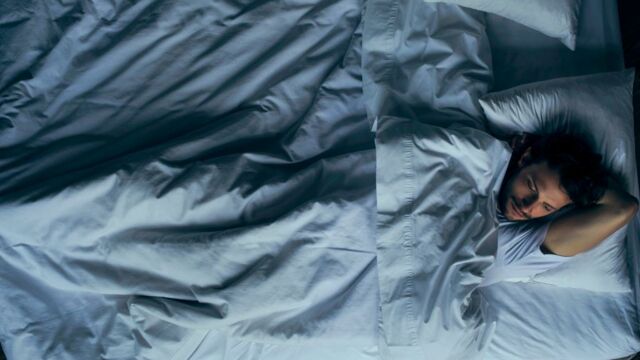There are a few tried and true tricks to creating a healthy sleep schedule: no screens before bed, making sure you get enough exercise, some people will even go as far as to use this age-old military trick. But, it seems there is a much easier (and undoubtedly more fun) way to ensure good quality shut-eye: masturbation.
Discover our latest podcast
How does masturbation affect sleep?
That’s right, according to a study published in Frontiers in Public Health, a little ‘self-love’ is all you need to get a good night’s sleep. The study explained that sexual intercourse causes a release of dopamine, serotonin, oxytocin and prolactin, which will help improve your sleep. The study also found that the chemical component stayed the same when it came to sex vs masturbation. General practitioner and author Dr Jeff Foster told Glamour:
Masturbation is the same as sexual intercourse, and therefore, the differentiation between the two is only significant in terms of that fact that other people may or may not be involved in the process.
From a sleep perspective, your brain does not care if you had sex with someone or by yourself.
There aren’t any numbers on how commonly masturbation improves sleep, but the studies connecting the two suggest the effect can be experienced by anyone as long as they reach an orgasm; this is because ‘climaxing’ is what triggers the release of all these ‘feel-good hormones.’ Dr Foster explains:
In general, all we can say is that we know what the hormonal and biochemical effects of masturbation are, and as a consequence, it is likely that most people will have some degree of improved sleep quality as a result.
Not only does masturbation improve sleep quality, but it also helps our brains develop a positive association with masturbation and sexual activity, making us want to do it over and over (cue memories of that rat self-stimulation study).
Masturbation can also reduce stress
Another huge benefit of masturbation before sleep is its ability to relax the body and reduce stress. Masturbation can inhibit the production of cortisol, the chemical associated with this kind of anxiety and tension. When people are stressed, and their cortisol levels are high, it can disrupt the body’s natural sleep cycle and even cause insomnia. Psychologically, when it comes to masturbation for relaxation and stress relief, there’s a little more at play than just an orgasm. While reaching climax helps trigger a range of endorphins, it can also help to take your time getting there and enjoy the sensations.
But, if you’re not too fussed on the ins and outs of self-love, and you’re just looking to get a good night’s rest, Dr Foster explained that how long it takes you to orgasm and how you get there don’t play a massive part in the end:
Obviously, there are additional psychological or social factors that will contribute to post-masturbation sleep, such as particular sexual preferences or preferred practices, or even if you have a partner or not. But these are all about individual lifestyle choices and preferences. They do not alter the core physiology of sex.















